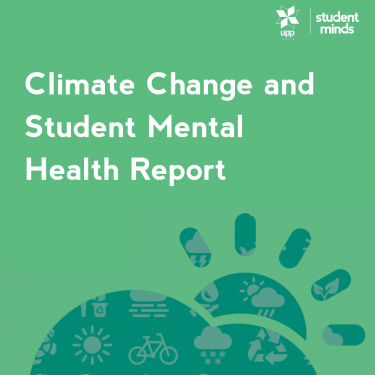Over 111,000 fewer students (aged 25 and over) in higher education than there were in 2012
42% decline in the number of students (aged 30 and over) on non-degree HE courses since 2012
The Government and universities must act now to reverse the catastrophic decline in adult education – or the future wellbeing and prosperity of the UK will be at risk, according to a report published today.
The progress report released by the ‘Civic University Commission’ – created by leading Higher Education (HE) charity the UPP Foundation – calls for the HE sector and Government to urgently address the decline in adult education.
It argues the large fall in adult student numbers represents a material threat to the UK economy – at a time when many workers are facing the loss of jobs through increased automation and the adoption of new technologies such as AI – requiring people to restudy and retrain to remain part of the fast-evolving labour market.
The threat is heightened by the potential impact of Brexit and the likely reduction in economic migration – meaning the need for a strong, well-educated and well-trained domestic workforce will be greater than ever.
To reverse the drastic decline in adult student numbers, the Commission is calling on universities to deliver more flexible routes back into HE for adults and a change in Government policy and funding.
Chaired by Lord Kerslake, the former Head of the Civil Service, and including eminent figures from the world of HE, business and civil society, the Commission is a major, nationwide and independent inquiry into how universities should serve their civic role in the 21st century.
Lord Kerslake, Chair of the UPP Foundation’s Civic University Commission, said: “Once the mainstay – even the defining purpose – of the civic university, adult education has been absolutely devastated over the last 20 years.
“Yet, as we move in to the fourth Industrial Age, AI and automation are likely to transform the workplace. Combined with the impact of Brexit on UK employers’ ability to recruit people with the skills our economy needs, the importance of continuous learning and developing new skills seems greater than ever.
“It is imperative for universities and Government to make this issue a priority. As a nation we can and must do better.”
Throughout evidence hearings, the Commission has identified some outstanding successes, but also some key areas where the civic role of universities is not being delivered to its full potential. This was most apparent in the devastating decline in adult education – the founding mission for many of our great universities.
The Commission’s report refers to data issued by the Higher Education Statistics Authority (HESA) which found that, since 2012, there has been a decline of 42% in the number of students over 30 in non-degree HE courses, and a 16% fall in the number of students over 30 studying first-degree courses.
The Commission argues the situation is the result of reforms to HE funding under successive governments while universities, which proudly extol their autonomy, in reality simply conform to national policies.
The Commission found that, in comparison to competitor economies, the UK is lagging far behind.
Evidence includes:
- The proportion of over 25s enrolled in tertiary education is one of the lowest in the OECD at 1.8%. Twelve OECD countries had more than 3% of their population enrolled in tertiary education in 2015.
- During the 2000s, 22 OECD countries saw an increase in the number of over 25s enrolled in tertiary education greater than in the UK. In Australia the number of students in tertiary education over 25 years old increased by 38%, in Belgium the number increased by 50% and in Ireland the number increased by 96%.
The Commission found that while there is a strong civic commitment and activity taking place in universities across the UK, there are few examples of a university with an explicit strategy for civic engagement based on a clear analysis of a city or region’s needs.
It discovered that examples of shared learning across universities – even in the same city – are fewer.
The progress report highlights the need for universities to firmly establish their civic role alongside teaching and research as a core focus of their strategy – especially in parts of the country which have experienced significant economic decline and borne the brunt of public spending cuts.
Finally, the Commission urges the Government to recognise the importance of the civic role of universities and the risks to HE if university funding is cut.
Richard Brabner, Director of the UPP Foundation, said: “The founding principle for the first civic universities was to provide education to adults, delivered part-time and in the evening.
“However, today, adult education is in significant decline – precisely at a time when the labour market is rapidly evolving, and the benefits for adults are proven, for example in terms of improvements in health, wellbeing and general prosperity.
“The HE sector must re-establish its civic purpose, particularly when it comes to adult education – and the time to start is now.”
The Commission’s recommendations are independent and wholly decided by its Commissioners.
Key recommendations of the Commission’s progress report
1. Universities
Regardless of national incentives, universities – as part of their charitable mission and civic responsibility – must prioritise adult education. In particular:
- Provide more flexible learning routes for mature learners (evenings, weekends, modular)
- Incentivise and reward of staff who engage in this activity;
- Organise and resource the university in a way that makes shorter courses more suitable to adults possible and desirable.
2. Government policy
However, it is also clear that changes to government policy are required to enable a more supportive environment for adult education to thrive. The Commission recommends the following policy proposals and innovations:
- Supportive funding environment for adult learners
- Relaxing the ELQ rule so that graduates are able to do further learning;
- Removing the 25% intensity rule so that both short courses, and longer-term learning, is eligible for loans and funding
- Allowing education that is not deliberately directed towards a qualification (such as a degree).
- Reform of the Apprenticeship levy
- Hypothecating some proportion of the apprenticeship levy for courses that are shorter and more modular;
- Having an additional, smaller levy for this particular purpose.
3. Pilots programmes
In the first instance the government should test out these changes by funding a series of pilots in different parts of the country. The National Retraining Scheme or similar should provide the capacity funds for the delivery of adult education, with joint bids between local authorities, LEPs, FE and HE a requirement








